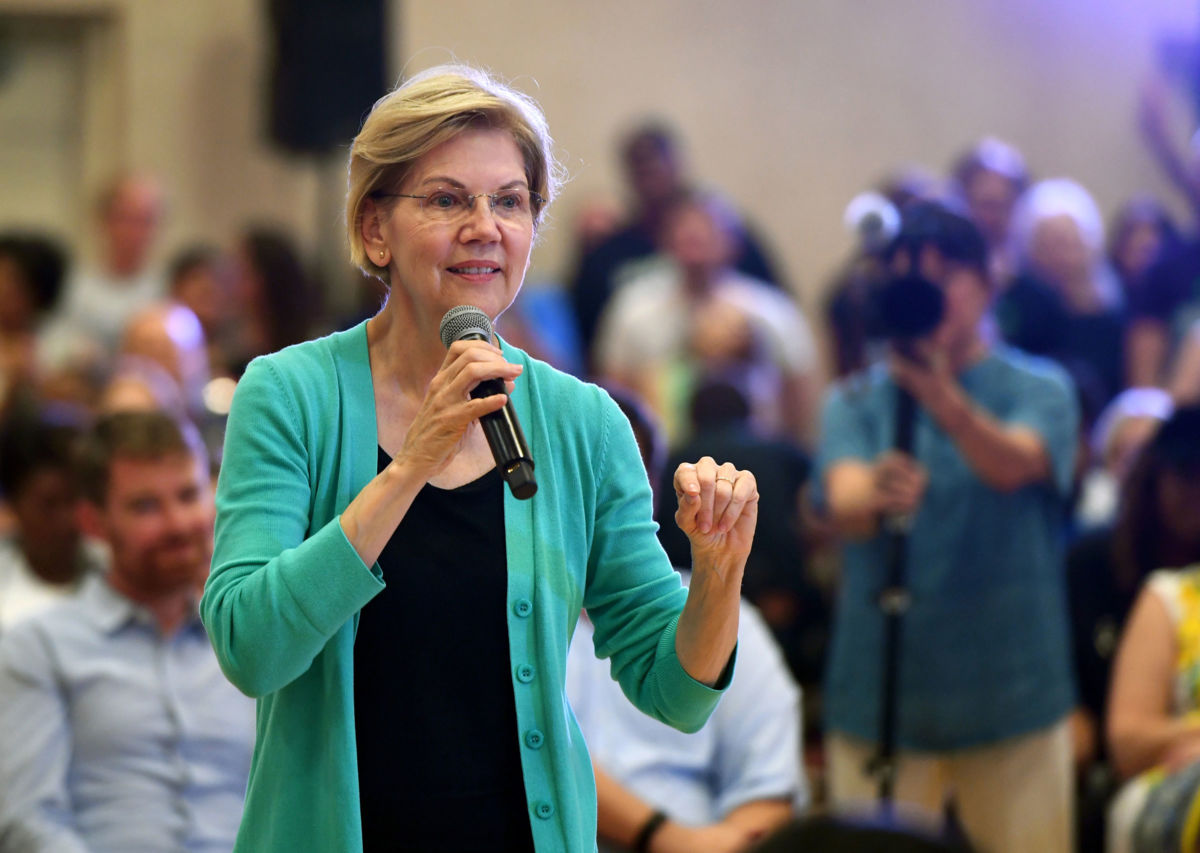Sen. Elizabeth Warren (D-Mass.) announced in a Medium post last week that, if elected, she would discontinue the practice of giving ambassador posts to major campaign donors.
The announcement came just 10 days after Kelly Craft, current ambassador to Canada and President Donald Trump’s nominee to succeed Nikki Haley as ambassador to the U.N., was grilled in her confirmation hearing for being absent from Ottawa nearly half the time that she was serving as the chief diplomat to America’s northern neighbor.
Craft’s critics were quick to note that the ambassador and her husband were major Republican donors. During the 2016 election cycle, the couple contributed more than $750,000 to the Trump campaign and outside groups that supported Republicans. They then gave an additional $1 million to fund Trump’s inauguration.
The Crafts were not alone. Gordon Sondland, Robert Wood Johnson and Doug Manchester — Trump’s ambassador picks to the European Union, the United Kingdom and the Bahamas, respectively — also donated $1 million each to the president’s inaugural fund. Manchester is still awaiting confirmation after incorrectly saying during his confirmation hearing that the Bahamas was a U.S. protectorate.
Nearly two dozen Trump nominees donated directly to his campaign, according to an OpenSecrets analysis. Another 19 gave $33,400 each to the Republican National Committee — the maximum donation allowed in a single year. Nine gave more than $100,000 to the Trump Victory fund, the president’s joint fundraising committee with the RNC, in 2016.
Several of Trump’s appointees were major donors who opposed him during the Republican primaries. Ronald Gidwitz, who was confirmed as ambassador to Belgium last summer, donated $75,000 to a super PAC supporting former Florida Gov. Jeb Bush shortly after Trump announced his run in 2015. Robert Pence, ambassador to Finland, contributed $150,000 to a super PAC backing Sen. Marco Rubio’s (R-Fla.) presidential bid.
Two ambassadors — Lynda Blanchard and Adrian Zuckerman, who were respectively nominated as diplomats to Slovenia and Romania — did not donate to the Trump campaign in 2016, though Blanchard’s husband contributed $500,000 to Trump’s inauguration fund. But both Blanchard and Zuckerman made contributions to the president’s reelection campaign in 2018, shortly before their nominations were announced.
Donations are not the only form of influence. David Friedman, who was confirmed as ambassador to Israel after a contentious confirmation hearing, only donated $50,000 toward Republican causes during the 2016 cycle. But Friedman, a New York bankruptcy lawyer, represented Trump in several cases in the early 2000s.
About 45 percent of Trump’s ambassador nominees have been political appointees, up from 30 percent of nominees under President Barack Obama, according to the American Foreign Service Association.
Although Trump is nominating more of his donors to ambassador positions than his predecessors, the practice of rewarding loyal contributors with State Department positions has been the norm in Washington for decades.
Dating back to President Gerald Ford, political appointments have comprised between 26 percent and 38 percent of each chief executive’s ambassador nominations. The remainder of appointees are career diplomats with experience in the foreign service. Political appointees are often appointed to carry out diplomacy with U.S. allies while career ambassadors are tasked with more difficult assignments.
Obama’s ambassador appointees included several dozen of his bundlers, or influential supporters who gathered donations on his behalf. Bundlers who were later named as ambassadors brought in tens of millions of dollars for Obama in 2008 and 2012, according to OpenSecrets estimates. Both Obama and former President George W. Bush voluntarily disclosed the identities of their bundlers, while Trump has not.
One example of a bundler-turned-ambassador was investment banker and former professional baseball player Mark Gilbert. In addition to raising more than a million dollars on Obama’s behalf during the 2008 and 2012 election cycles, Gilbert personally gave $120,000 to the Democratic National Committee between 2008 and 2011. He was named ambassador to New Zealand during Obama’s second term.
When Warren announced last week that she not appoint ambassadors based on political contributions, she drew a sharp contrast with Trump.
“This president may think a fat wallet and a big campaign check qualifies someone to represent our country abroad,” she wrote. “I don’t.”
If the Massachusetts senator is elected president and follows through with her proposed approach to diplomatic nominations, it would be a departure not only from her Republican predecessor, but from many presidents before him.
Matching Opportunity Extended: Please support Truthout today!
Our end-of-year fundraiser is over, but our donation matching opportunity has been extended! Today, all donations to Truthout will be matched dollar for dollar. Your one-time gift today will be matched immediately. As well, your monthly donation will be matched for the whole first year, doubling your impact.
This matching gift comes at a critical time. Trump has made it no secret that he is planning a demolition-style attack on both specific communities and democracy as a whole, beginning on his first day in office.
Help us prepare for Trump’s Day One, and have your donation matched today!
